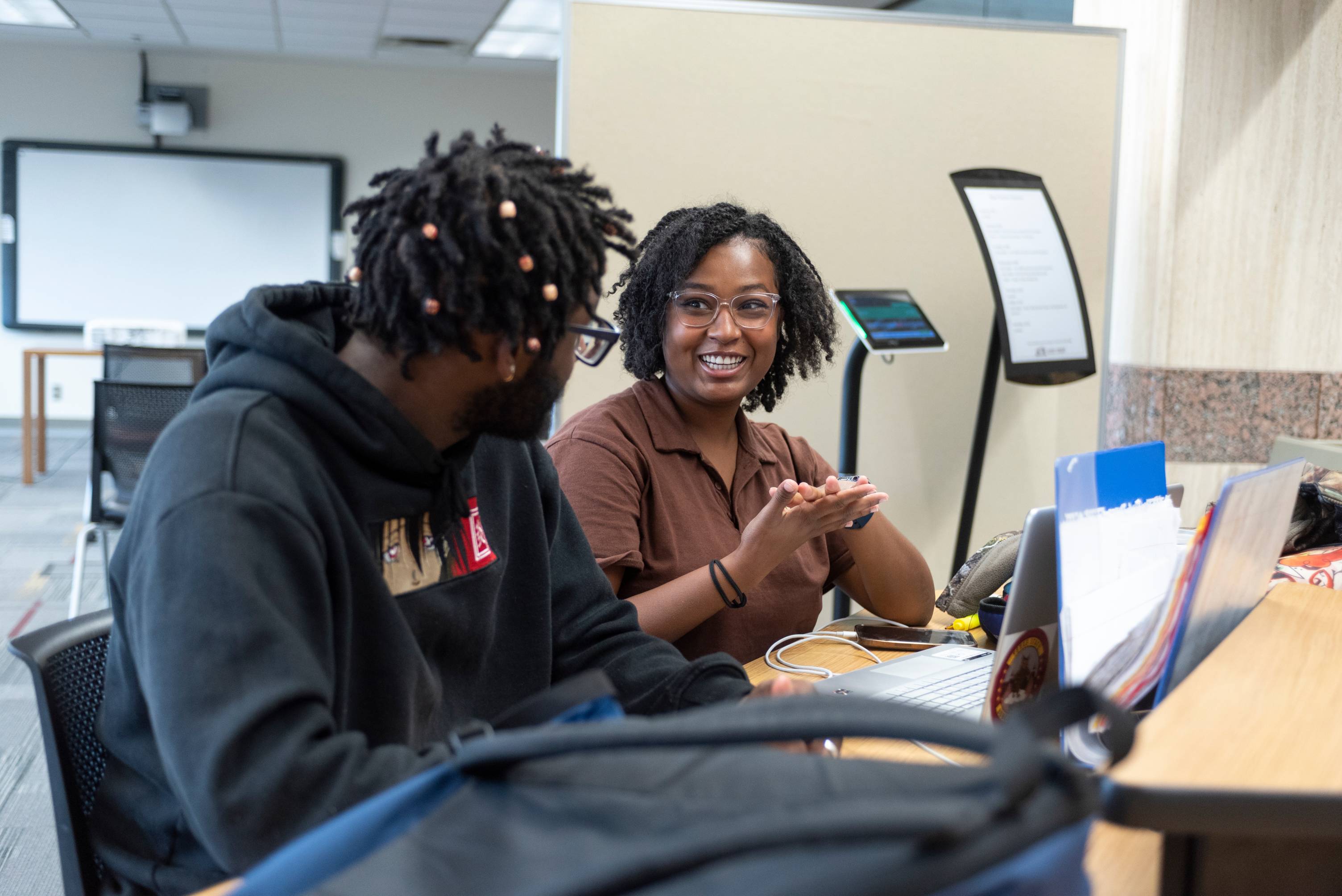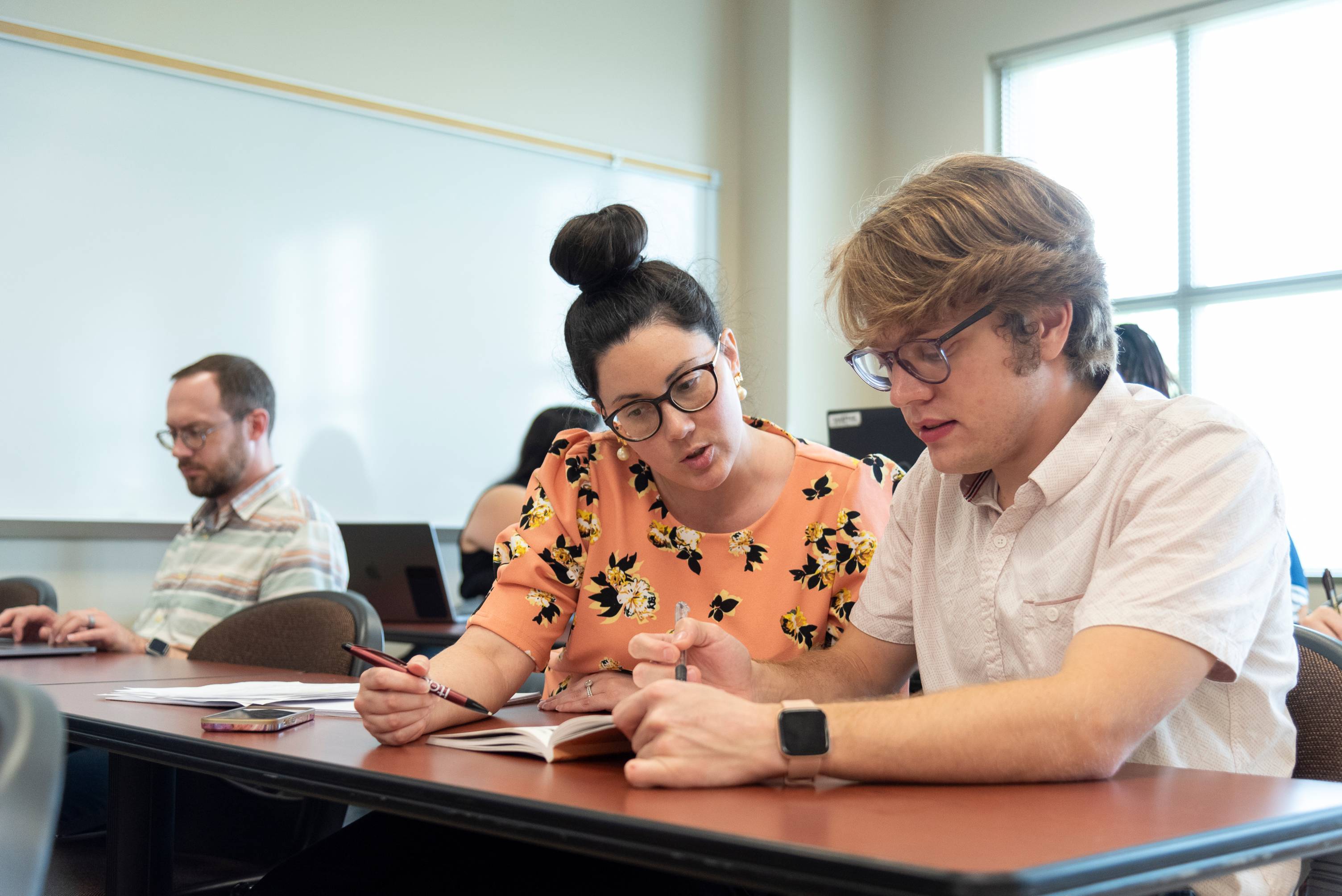Mentoring Graduate Students
Designed to Support Graduate Faculty Who Are Mentoring Graduate Students
Most graduate faculty did not receive training in their doctoral programs about how to mentor graduate students. There are many benefits to students who receive effective mentoring (refer to Inside Higher Ed articles, “Dear Faculty: You Matter More Than You Know” and “Students Need Mentors, and More Help in Making Those Connections”). Mentoring is also very rewarding for faculty!
Mentors can…
- make it more likely that students will stay on track and complete their degree in a timely way
- help with networking and growing students’ networks
- teach students about the norms of academia (revealing taken-for-granted academic jargon, providing typical timelines, developing and enhancing skills in writing for academic audiences, etc.)
- support mentees in their career and professional goals
- and…these benefits are especially important for students who feel excited but intimidated by graduate school and/or faculty, and students who have no one in their families who have attended graduate school.
Ideally, mentors will:*
- take an interest in developing another person’s career and well-being.
- advance academic and professional goals in directions most desired by the individual.
- tailor mentoring styles and content to the individual, including adjustments due to differences in culture, ethnicity, gender, and differences in student experience.
*From the University of Michigan, Graduate Student Mentoring Guide (2020)
General Advice and Tips for Mentors

Mentoring takes many forms and styles. None of us can or should mentor in the same exact way. Likewise, our students need different types of mentoring. Sometimes, the research advisor and/or committee chair is the student’s mentor, but not always. Thus, keep these tips in mind:
-
Consider differences among your mentees
Students have differing work styles and levels of abilities. Some have more knowledge about the academic world than others. Some students are very independent and would rather not meet frequently. Other students will need and want to meet more frequently with you, or request more structure and clarity on expectations. Likewise, some mentees plan to follow traditional paths to academia. For others, their graduate degree is a steppingstone to a career, promotion, and/or higher salary. Try not to assume that your mentees will have the same work styles, commitment, and career goals that you did. For example, refer to “Tips for Faculty Who Mentor Students Who are Working Professionals.” Thus, your mentoring style and expectations might be different with each student.
-
Think about how you want to mentor
Some mentors see the student as an apprentice, while others see their students as potential colleagues. Consider the pros and cons of different styles and be willing to change as needed. Regardless of your style, mentors are usually trying to move students to be more independent as they progress through their graduate program. Refer to “Be a Coach, Not a Guru” from Inside Higher Ed.
-
Have university and Graduate College resources at your fingertips
This will supplement your mentoring and encourage your students to seek out their own support as needed (e.g., The Writing Center, The Counseling Center, Graduate College live and recorded Shop Talks, etc.).
-
Think about how you will provide feedback, including how much you are willing to provide help with student writing
Try to put yourself in your students’ shoes. Line-by-line editing isn’t always the best way to provide feedback. Consider the timing, content, and format of your feedback.
-
Think about how you will support your student and in the way that you feel most comfortable
Most of us are not trained counselors but some students will want to talk with their mentors about personal issues and struggles. At a minimum, you can say that you understand, and that graduate school attracts dedicated, bright students, which means high expectations for themselves. This can result in being overly critical. You can mention that there are Shop Talks (live and recorded) that focus on mental health and wellness, and The Counseling Center’s services, if appropriate. If you like, you can complete the online At-Risk Training, “Kognito,” which takes only a couple of hours. This highly effective, self-paced training teaches faculty about recognizing signs of distress in students and ways to offer support. Make recommendations about balancing research/work/life/family if you feel comfortable doing so.
-
Ask students to create action items
End your meetings with mentees by asking them to create action items. Action items can be especially helpful for students when they are not making progress. The action items must be completed in writing before the next meeting. Some mentors will not meet with them again until they have done at least a percentage of the tasks on that list. It helps students break down overwhelming tasks AND make steps towards progress.
- For example: Depending on your mentoring style, you can ask mentees to describe their intentions for the term, list deadlines they need to remember, and list deadlines for sending paperwork to the program graduate coordinator/advisor/staff and/or The Graduate College.
-
Important for new faculty and new mentors
Take a look at theses and dissertations in your department and talk with other graduate faculty in your program so that you can calibrate the scope of the project (i.e., not ask too much or too little from your advisees):
- Digital Collections Repository
- Click on the Dissertations and Theses section of Digital Collections, which will bring you to this site: https://digital.library.txstate.edu/handle/10877/134
-
Take care of yourself!
Mentoring is rewarding and satisfying. It can also take a lot of time and energy, particularly for popular mentors who have many mentees. Protect your boundaries (refer to “How to Listen Less” from Inside Higher Ed).

Clarifying Expectations with Mentees
What do you expect of your mentees? What should they expect from you?
One of the most important things mentors can do is clarify expectations. What follows are potential points of discussion you might have with your new mentees depending on your preferences, mentoring style, and the guidelines, expectations, and policies of your particular program. Choose the discussion points that you see as most important to you and your mentees.
Guidance on How to Clarify Expectations
- Tell mentees about milestones and timelines in your program. For example, what should they have completed or submitted at the end of the first, second, third (etc.) semesters?
- Discuss expectations about feedback that you will provide. It is useful for mentees to know that they will receive lots of feedback about their writing and ideas. Discuss how criticism is not personal but serves to makes their work better.
- Talk about revisions: new graduate students are often unaware that revisions are constant in most large academic projects.
- Inform mentees that it is their responsibility to determine all deadlines, formats, and administrative work (e.g., forms and signatures needed) related to the project and the defense.
- Let mentees know how much time you typically need to read drafts of chapters and other written work (e.g., 1-2 weeks per chapter). Some students are unaware of the fact that faculty have significant workloads in teaching, research, and service and expect a fast turnaround.
- Inform mentees that they can utilize lots of resources on campus that will support their journey. You, as the mentor, are not in this alone!
- Discuss why mentees should stay in contact with you on a regular basis (e.g., otherwise, you cannot know which resources they need, how to help them get “unstuck,” etc.). For advice about helping students make progress, refer to “Why Won’t My Students Finish Their Dissertations? (an article that applies to theses as well).
- Discuss how often do you want to meet and your communication methods preferences (email, phone, Teams, Zoom, etc.). Are you okay with students dropping by when it is not your office hours? Do you prefer an appointment? How often? Discuss your expectations about emailing (for example, perhaps you do not respond to emails on weekends).
- Discuss professional goals with your advisee. Should they aim to present conference papers? If so, when in the program should they plan to present? Which conference(s)? Should they attend career fairs?
- Encourage your students to take strategic breaks (e.g., walk outside, leave their office at least once a day).
- For an additional advice, see the University of Michigan Rackham Graduate School, “Checklist for Dissertation Chairs” (which can be applied to thesis chairs, or supervisors of student projects, internships, etc.) and a book by Gretchen Oltman, Jeanne L. Surface, and Kay Keiser (2019) Prepare to Chair: Leading the Dissertation and Thesis Process. Available in the Alkek library.
Resources

Watch recorded Faculty Development workshops:
- “Bobcats from All Over the World: Supporting International Graduate Students”
- “Getting Your Graduate Students to the Finish Line!”
- “Helping Your Graduate Students Dealing with Procrastination, Perfectionism, and Mental Health Issues”
- “Successfully Supervising Graduate Students’ Theses and Dissertations”
